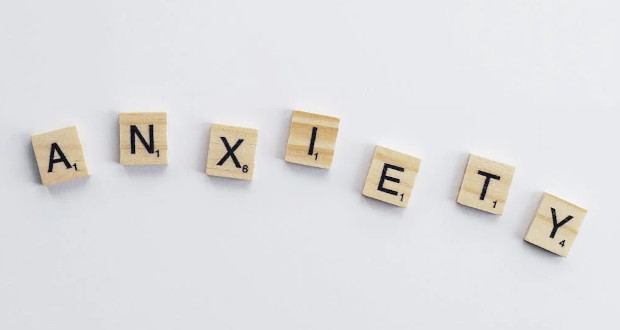Future Anxiety: How Not to Get Stuck in “What If”?

Future Anxiety: How Not to Get Stuck in “What If”?
Let’s do a quick test: imagine yourself staring at the ticket to a destination of your dreams, or thinking about applying to jobs, or discussing plans with your partner. Is there a feeling of something else beneath the happy anticipation? A lot of people don’t even realize that when they think about the future, their stress levels go through the roof. That’s future anxiety — a stealthy worry that appears whenever you think about events from the long-term perspective. What is it, and how does it work? Even more, why does it do this, and how to get unstuck? Stick around to find out.

Future Anxiety: What Is It, and Why Do We Get It?
Future anxiety is a phenomenon many people experience when thinking about the future, especially something that’s relatively long-term-oriented — it’s when you start imagining everything that can go wrong (even things that can’t). This is a painful and often overlooked chain of “what ifs” that makes individuals view everything as uncontrollable and unpredictable. Future anxiety takes a narrative in your head and spins it into endless difficulties or even disasters along the way, and our wellbeing Liven community has found that many people with high anxiety levels and unpredictable environments suffer from it. For some, it can be temporary, while others develop it as a mental habit.
In psychology, this term is called anticipatory anxiety, and it’s more common among some people than others. While sometimes it’s a sign that an individual can have a diagnosed anxiety disorder, it’s not necessarily the case. We all worry about the future; sometimes, we do it too much.
The physical symptoms can be even more unpleasant. You might feel restless, tense, have trouble sleeping, or even experience stomach issues or a racing heart. It’s particularly upsetting when you’re thinking about something truly exciting, but instead fall into the Everything Will Be Terrible trap.
Causes of Future Anxiety
Anticipatory anxiety isn’t just something people do for the fun of it. It has deeper causes, some of which we might not even be aware of. Here are some of them:
- Our brain’s negativity bias. In the past, the tendency to consider different paths of even the most mundane future events could have saved us. Our brains are wired for preparedness and survival, which is why we can focus on the worst scenarios. Although this ancient survival mechanism isn’t helpful now in most cases, it impacts our behaviour.
- Fear of uncertainty. Many things can change in the future, and when that area has blank spaces like an undiscovered map, we start to hypothesize, and our hypotheses are surprisingly pessimistic.
- Past experiences. Suppose you’ve been blindsided by something hurtful before — like a sudden loss, a bad breakup, or a traumatic event — your brain might stay on high alert, scanning for signs that it could happen again.
- Control issues. A great deal of future anxiety stems from our desire to control everything. Many people are comfortable around the routine, and any disruption can feel like a threat. The future becomes an untamed creature you try to command by predicting it, even if it hurts you.

Getting Unstuck — Challenging and Grounding
Although anxiety can be a troubling thing, it doesn’t define you or the future. You have the power to stop staring into the horizon of things that aren’t here yet.
Challenging and Flipping the “What If”
When thinking about the future, there are two most common CBT approaches that are practical when implemented regularly.
The first, challenging your thoughts, is a simple act that needs just a pen and a piece of paper. When you think about the future, write down the first “What if?”, for example, “What if I get on the train and get lost?”
Then, challenge this hypothesis. Ask yourself, how is that likely? What supports this claim? Over time, you might notice that your fear is more emotional than logical.
An even more exciting strategy is flipping the switch. Instead of “What if I fail?” ask yourself, “What if I grow from it?” or “What if it becomes my greatest adventure?”
Focus on Things You Control
If you aren’t ready to expect the future blindly, there’s a strategy for you. Write down things that you can control. For instance, if you are worried about your job interview, you can control how well you prepare or what clothes you pick to look more presentable. Do one thing right now that will immediately lessen your stress.
Grounding techniques
When we gaze too long into the future, we forget to exist in the now. Grounding techniques will bring you back to reality.
5-4-3-2-1 technique:
- Name 5 things you can see
- 4 things you can touch
- 3 things you can hear
- 2 things you can smell
- 1 thing you can taste.
This sensory checklist can snap your brain out of the anxious spiral and remind you to keep in touch with the physical world.
Deep Breathing:
Try box breathing: inhale for 4 seconds, hold for 4, exhale for 4, hold for 4. Repeat.
Limit Anxiety Triggers
External factors can contribute to our anxiety — sometimes, it’s the people who fuel our fear. In other cases, this is the news in the media about the topic that worries you. Reduce your doom-scrolling and cut down on consuming content that makes you nervous. Replace these unpleasant and worrying things with pleasant ones, like meditations, a favourite movie, or a calming drink.

Conclusion
The future is much brighter than you think. And although imagining the best scenarios and focusing on the “now” can be difficult at first, you don’t have to change everything in one day. Just allow yourself to be excited about the next day, and the next, to plant some hopeful “What ifs” in the forest of the more negative ones. Remember: the world has always been uncertain, and yet, you have persisted and have grown since then, whether the finish line was bright or not. So, if you don’t know what to expect? Think of it as an adventure it can be.
Guest Article.




